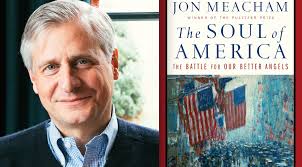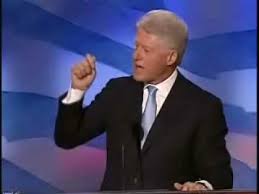
What a privilege to see Jon Meacham in person. There were so many things he did as a speaker to captivate his audience. I will focus on two: humor and humility.
They occurred within the first two minutes of his speech.
After receiving a glowing introduction, which went on and on, with one notable accomplishment after another, and ending with the title of his most recent book, “The Soul of America,” Mr. Meacham began his speech.
(Full disclosure. This is not verbatim. I am telling the essence of the story, even though I am using quotations.”
“Thank you for the wonderful introduction.
“I was walking in the National Mall, when a woman comes rushing up to me – which doesn’t happen nearly enough. She said, ‘I love your books. I’ve read all of them. I have one in my car nearby. If I go get it, will you sign it for me?'”
“I was flattered and told her I would.
“A few minutes later, she comes hurrying back to me with “Runaway Jury.” (John Grisham’s bestseller.)
“My ego deflated, however, I signed it, thanked her, and she walked away.”
Jon Meacham – a celebrated and distinguished presidential biographer – captured us all with humor and humility.


